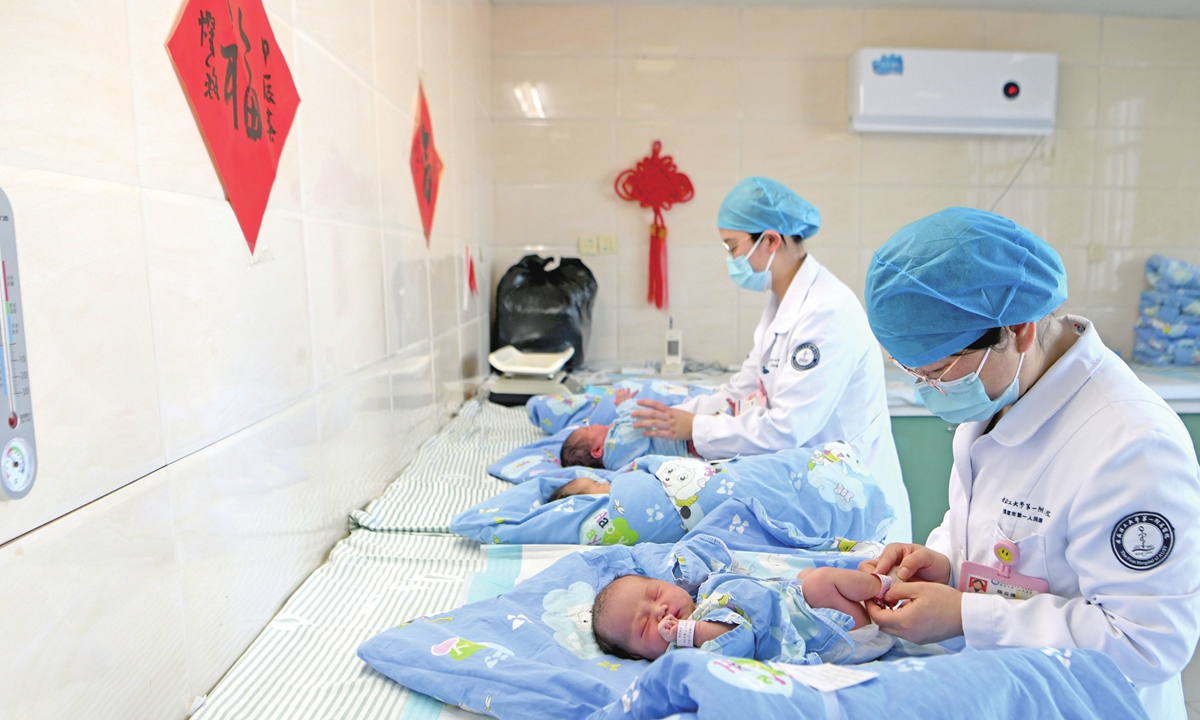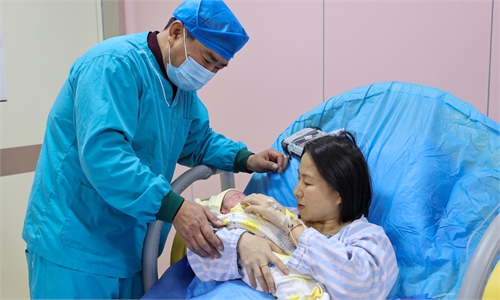
Nurses take care of dragon babies at the First Hospital of Anhui University of Science and Technology in Huainan, East China’s Anhui Province, on February 16, 2024, the first day of the Year of the Dragon. Photo: VCG
A national political advisor has suggested China scrap its birth limit completely to boost the country's birth rate, and give equal birth support policies to single parents, as well as children born out of wedlock.
In the face of rapidly declining birth rates, it is no longer appropriate to continue restricting the number of children families can have, said Xiong Shuilong, a member of the Chinese People's Political Consultative Conference (CPPCC) National Committee.
Thus, Xiong proposed to completely abolish the limits on the number of children residents can have and truly return the right to have children to families. At the same time, give unmarried or single parents the equal right to enjoy relevant support policies for childbearing, Xiong stated in his drafted proposal which is scheduled to submit during this year's two sessions.
The political advisor also put forward suggestions on reducing social costs borne directly by enterprises due to female employees' childbirth. The proposals include improving cost-sharing mechanisms for maternity leave, significantly reducing the social security costs borne by enterprises for female employees during maternity leave and extended prenatal check-up periods. For enterprises that hire women of childbearing age, certain income tax reductions can be granted, Xiong suggested.
He also appealed local government to provide subsidies for families with multiple children, and accelerate the building of public kindergartens and nursing homes, in order to relieve the burden of parents.
China's population decreased by 2.08 million people in 2023 to 1.40967 billion, the National Bureau of Statistics data showed in January this year. In 2023, 9.02 million babies were born, resulting in a birth rate of 6.39 per thousand people. Meanwhile, 11.1 million people died in 2023, equal to a death rate of 7.87 per thousand people, the data showed.
In 2021, China further lifted its family planning policy to allow each couple to have up to three children. The ratio of third children among Chinese newborns in 2022 was 15 percent, 0.5 percentage points higher than in 2021, a statistical bulletin released by China's top health authority said in October last year.
Policies to boost birth rate are expected to become a focal point for representatives at this year's two sessions, which starts next week. Before the national two sessions, provincial-level regions have concluded their local sessions. The Global Times has noticed that this year's provincial two sessions have seen representatives paying more attention to livelihood issues such as marriage, childbirth, and the protection of minors.


